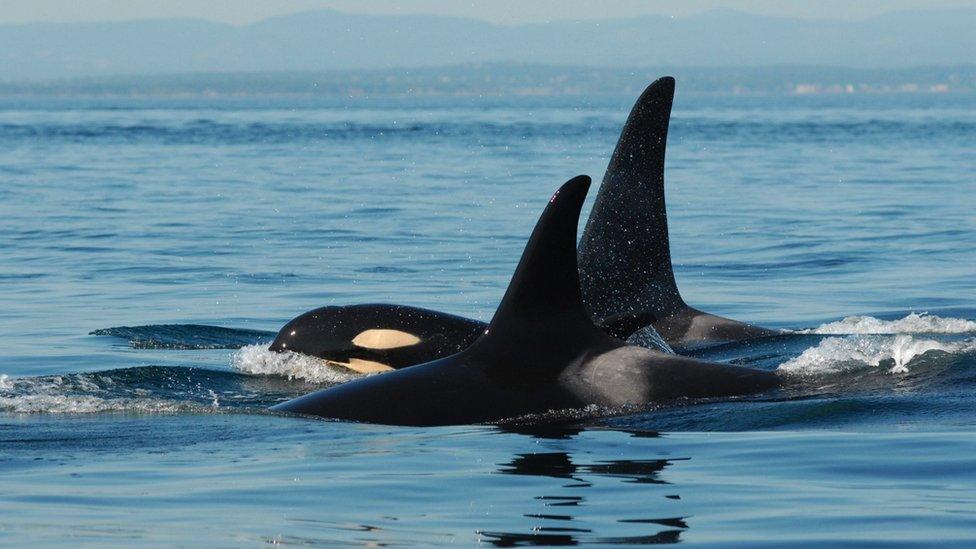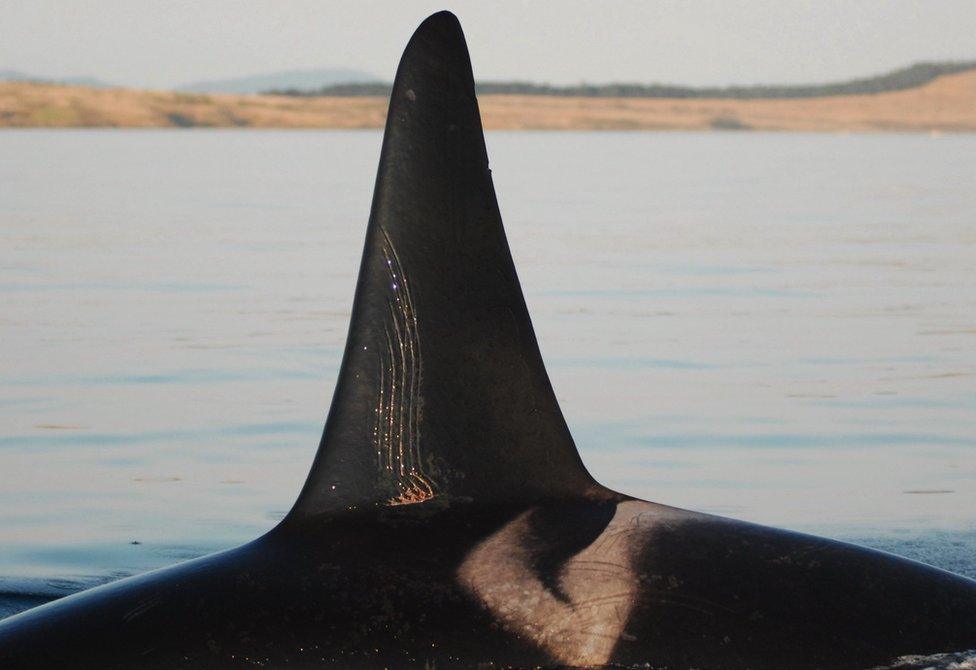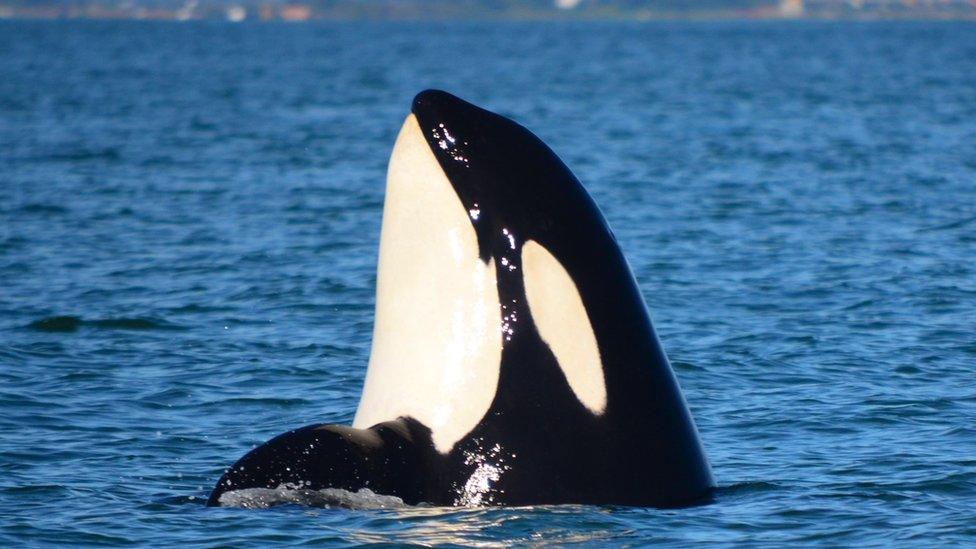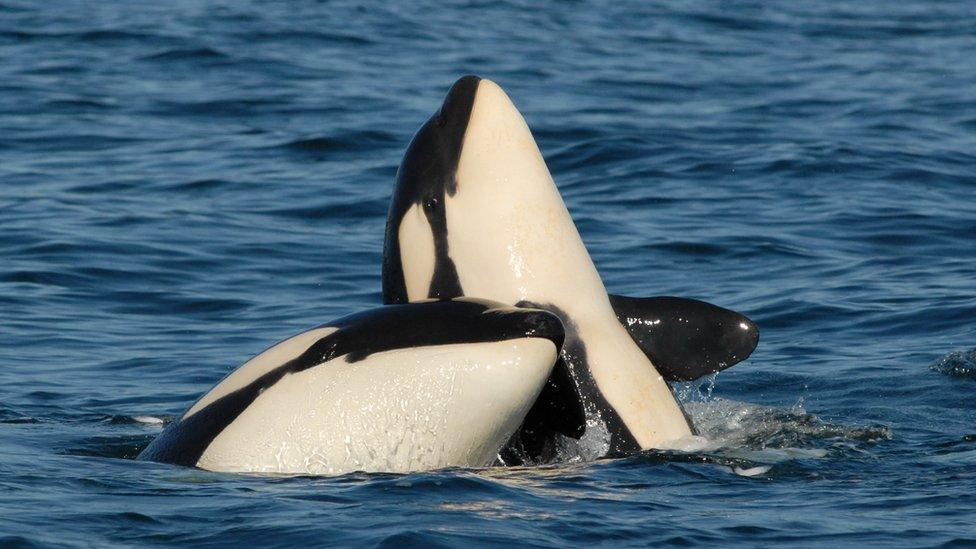Orca mothers keep 5-tonne sons out of trouble
- Published

A large male (in the background) sticks close to his post-reproductive mother
Older, "post-menopausal" orca mothers protect their adult sons from fights, according to new research.
The study examined tooth rake marks on the animals' bodies - inflicted in confrontations with other orcas.
It revealed that, when an adult male's post-menopausal mum is with him, he is much less likely to be harmed.
But, while four or five-tonne males benefit from this maternal protection, female offspring do not receive the same attention.
Lead researcher Charli Grimes from the University of Exeter told BBC News that the protection from these older mothers was very targeted: "Mum is definitely, in some way, trying to protect her sons."
For the research, published in the journal Current Biology, external, scientists used photographs of orcas in a population that lives off the Pacific coast of North America. Ms Grimes and her colleagues found there were far fewer "socially inflicted injuries" on the bodies of male offspring which were with their mothers, but only when they were post-reproductive.
Whale menopause puzzle
The work is part of long-term research on these "southern resident" killer whales. One of the key questions biologists have been asking, is why the females of this species stop reproducing part-way through their long lives.
Ceasing reproduction - or menopause, as it's referred to in human biology - is very unusual in the animal kingdom. It is limited to humans and a few whale species.
Female killer whales live up to 90 years in the wild, and most live more than 20 years after menopause.
Decades of research on the southern residents has suggested that - instead of competing with their daughters to breed - these older female killer whales evolved to play a vital, matriarchal role long after they ceased to have their own calves.
They give particular attention to their sons. "Males can breed with multiple females, so they have more potential to pass on their mother's genes," explained Ms Grimes.

The dorsal fin of an adult male orca showing tooth rake marks from a fight
This has resulted in mature, five-tonne male orcas sticking close to - and being very dependent on - their mothers.
"These sons are really reliant on their mums for their survival," said Ms Grimes. "Mothers will even directly feed their sons salmon that they catch.
"[So] it could also be that mum is present in a situation of conflict, and can signal to her sons to avoid the risky behaviour they might be participating in."

Adult males can weigh up to five tonnes
The ongoing study of this threatened killer whale population, which lives in the coastal waters between Vancouver and Seattle, was started by Dr Ken Balcomb. Initially, he wanted to examine the threats to their survival, particularly as the population was targeted for capture and sale to some marine parks.
As well as garnering the southern resident killer whales official protected status, the ensuing years of work and observations went on to reveal insights into killer whale life that could only have come to light through decades of study. The studies have revealed, for example, the vital role of killer whale grandmothers and how much the females sacrifice to support their sons.
Professor Darren Croft, also from the University of Exeter explained: "We've got hypotheses, but we need to test them by seeing what's happening under water when these different groups interact. We've learned so much from this population, but we've still got so much to learn from them."
Follow Victoria on Twitter, external
Related topics
- Published9 February 2023

- Published9 December 2019
